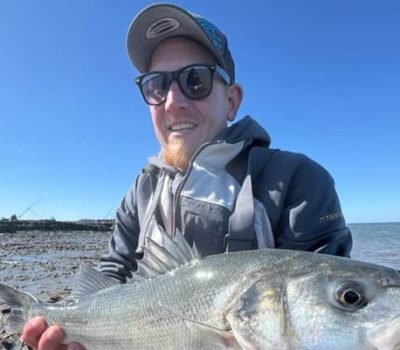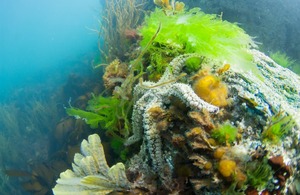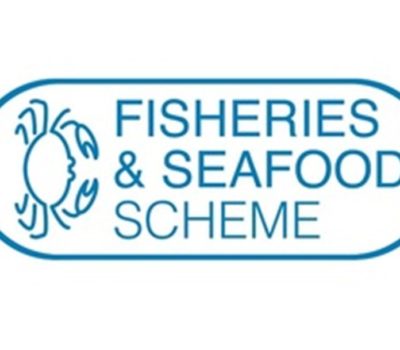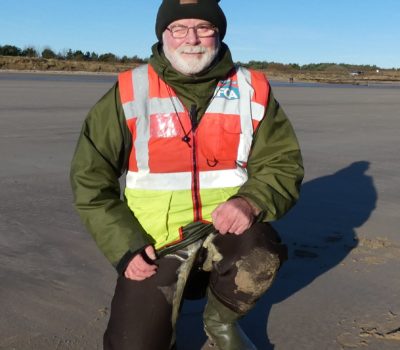The Power of Partnership Working
By Mike Hardy NIFCA CEO
At Northumberland Inshore Fisheries and Conservation Authority we are committed to joint working and collaborating with organisations locally and nationally that complement our aims. We believe we can achieve great things when we actively engage with people from different organisations who share our goals to achieve a sustainable marine environment and inshore fisheries in our coastal district.
NIFCA is a member based organisation comprising general members who are acquainted with the needs and opinions of the fishing community in the district and persons with knowledge of or expertise in marine environmental matters; they work alongside statutory appointees from the Environment Agency, Natural England and the Marine Management Organisation, as well as Councillors from Northumberland County Council and North Tyneside Council.
For many years NIFCA has enjoyed a strong and rewarding relationship with Newcastle University and its marine biologists, who now form part of the School of Natural & Environmental Sciences (SNES), formerly the School of Marine Science & Technology.
Marine biologists at Newcastle University recognise that in today’s environmentally conscious era, sustainable use of the seas, conservation of sea life and the management of the marine environment and coastlines are critical. Its teaching focuses on these concerns including the sustainable use of the sea and our waterways for food, energy resources, transport and leisure.
Regionally, the SNES biologists work to conduct fundamental and applied research, education and engagement work relevant to the North East coast of England, including in the NIFCA district. Their projects have sought to understand a wide range of issues including coastal heritage, long-term changes in the plankton and benthos, methodologies for quantifying biodiversity and assessing changes in abundance, and shellfish fisheries.
NIFCA’s partnership with Newcastle University and SNES is mutually beneficial. Since NIFCA’s inception 10 years ago, we have conducted dozens of studies and surveys in collaboration to understand the health of different habitats, including subtidal ones. Our research looks at seabed species and communities to assess the effects from different types of fishing on the fish, lobster and mussel stocks in the district.
A significant part of the partnership is SNES’s work in robust evidence gathering. Its post graduate and PhD students regularly carry-out bespoke research projects for the Authority, which provide us with an important, solid-scientific evidence base to inform our work.
NIFCA’s relationship with Newcastle University has also been strengthened by another important partnership with Natural England. Dr Catherine Scott, a Senior Marine Advisor at Natural England and a member on the Authority, has been an integral part of this partnership working, from developing research questions, to securing funding for projects, and supporting researchers in carrying out their projects. This has benefited all involved by strengthening the outputs and, in many cases, has meant research work has continued beyond set projects.
Nicholas Polunin, Professor of Marine Environmental Science at Newcastle University is a former NIFCA member who served the Authority for ten years. He explains: “Our long-standing relationship with NIFCA is important because of what the Authority does for the management of our inshore waters and supporting The Marine and Coastal Access Act 2009.
“The Act modernised the way that inshore sea fisheries resources are managed in England, widening the remit to a more holistic approach, which includes broader environmental issues beyond the fishing industry, such as seabirds and marine mammal populations, and vulnerable habitats.
“The Authority’s approach in Northumberland is truly collaborative; bringing together partner expertise and stakeholders from different groups and environmental backgrounds to work together on conservation and sustainability. It also enables the University to build closer links with our communities in the North East. I’m truly impressed by the Authority’s commitment to inclusivity.
“Our relationship with the Authority is extremely valuable in producing the scientific data and the important evidence needed for the continued management of inshore habitats and stocks. Meanwhile our students benefit greatly by conducting real-world marine conservation research projects.
“We have several students who have gone on to pursue successful careers both in the UK and overseas in teaching and senior research posts. We have a former student teaching Marine Biology at Exeter University, another is a researcher at the University of British Columbia in Canada, one is working for the Marine Management Organisation in the UK and another is employed by its equivalent in New Zealand. We also have a number of students who have gone on to work as officers at NIFCA.”
Recent examples of research projects NIFCA has successfully undertaken with the University have been aimed at understanding how to better protect our inshore waters. These projects include:
- The impacts of dredging on scallop habitats in the NIFCA district.
- Knowledge of informal rules governing fishers’ behaviour to inform policy making suited to local conditions and supported by resource users.
- Social networks and fishers’ behaviour: exploring the links between information flow and fishing success in the Northumberland lobster fishery.
- Mapping inshore fisheries and comparing observed and perceived distributions of pot fishing activity in Northumberland.
- Experimental potting impacts on common UK reef habitats in areas of high and low fishing pressure.
- Movement, activity patterns and home-ranges of European lobster.
- Exploring a Science – Fishing Industry Partnership for Assessing Marine Biodiversity.
Pippa Moore, Professor of Marine Science at Newcastle University’s School of Natural and Environmental Sciences is a NIFCA member. She joined the Authority in April this year.
Pippa says: “The University has a rich history in marine biological research. We have a ready supply of students who want to provide answers that address real issues.
“It’s also important to have academics on the NIFCA panel; we can bring an experienced and scientific background that can translate complicated data and provide an independent voice to give a deeper understanding of the science, including beyond the context of Northumberland. It means everyone on the panel can make informed, evidence based decisions that will ultimately support NIFCA in meeting its objectives.”
“Our aim for the next decade is to carry on working closely with the local fishing industry, recreational fishers, our partners and the wider community to create a healthy and sustainable marine environment for many generations to come.”
NIFCA celebrated its 10th Anniversary in April this year. We have come a long way in the last decade, producing a suite of byelaws and management measures which enable local fishers to work sustainably in the waters off Northumberland and North Tyneside whilst ensuring a prosperous local fishing industry.
Importantly, it is through powerful and enduring partnerships with our key stakeholders, like Newcastle University, that we hope to succeed in working to conserve environmentally important marine life and ecosystems for present and future generations.






